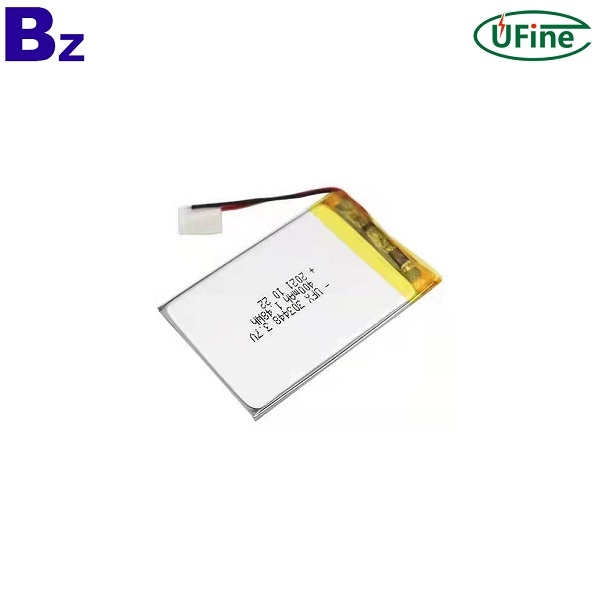As a portable energy storage device, lithium ion batteries are widely used in mobile phones, notebook computers, cameras, electric bicycles, electric vehicles and other fields. Among them, the lithium battery electrolyte is an aspect that cannot be ignored. After all, the electrolyte, which accounts for 15% of battery cost, does play a vital role in battery energy density, power density, wide temperature applications, cycle life and safety performance.

Electrolyte is one of the four key materials of lithium batteries: positive electrode, negative electrode, separator and electrolyte. It is called the "blood" of a lithium-ion battery and conducts electrons between the positive and negative electrodes of the battery. It is to obtain high-voltage, high-voltage lithium batteries, ensuring energy ratio and other advantages.
As we all know, the main components of lithium-ion batteries include four aspects: positive electrode material, negative electrode material, electrolyte and separator. As an important part of lithium-ion batteries, electrolyte plays an irreplaceable role in improving the cycle performance and energy density of lithium-ion batteries, thereby further increasing the range of electric vehicles. The energy density of lithium-ion batteries depends on the voltage and capacity of the battery. In order to increase the energy density of the battery, in addition to increasing the capacity of the positive electrode material and the negative electrode material, another method is to increase the operating voltage of the battery. In this way, the battery will affect the electrolyte under high operating voltage. The high-pressure performance also puts forward new technical requirements.
The electrolyte conducts electrons between the positive and negative electrodes of the lithium battery, ensuring that the lithium ion battery can obtain the advantages of high voltage and high specific energy. Electrolyte is generally prepared from raw materials such as high-purity organic solvents, electrolyte lithium salt and necessary additives in a certain proportion under certain conditions.
High specific energy electrolyte: Pursuing high specific energy is currently the biggest research direction of lithium-ion batteries, especially when mobile devices occupy an increasing proportion of people’s lives, battery life has become the most critical performance of batteries.
Organic liquid electrolyte: Carbonate organic liquid is a good solvent for lithium salt, with an oxidation potential of 4.7V and a reduction potential of about 1.0V (the voltage value in this article is relative to the potential of lithium); in addition, the viscosity of carbonate is relatively low. The activation energy for lithium ion migration is also low. Therefore, the most commonly used electrolytes are carbonates and their mixtures, including PC, EC, DEC, DMC, EMC, etc.
Liquid electrolyte: The choice of electrolyte has a great influence on the performance of lithium-ion batteries. It must be chemically stable, especially not easily decomposed in a higher potential and higher temperature environment, and has a higher ionic conductivity (>10-3 S/cm), and must be resistant to positive and negative materials. It is inert and cannot corrode them. Due to the high charge and discharge potential of lithium-ion batteries, chemically active lithium is embedded in the negative electrode material, and organic compounds must be used in the electrolyte instead of water.
Ionic liquids: In recent years, normal temperature ionic liquids (such as 1MLiTFSI/EMI-TFSI, EMIBF4, BMIBF4, etc.) can replace lithium-ion battery electrolytes due to their high oxidation potential (about 5.3). V) and not flammable. It has the advantages of low vapor pressure, good thermal stability, non-toxicity, high boiling point and high solubility of lithium salt. However, the high viscosity of ionic liquids impairs the mobility of lithium ions.
Safe electrolyte: The safety of lithium-ion batteries during combustion or even explosion is very important. First, the battery itself is flammable. Therefore, when the battery is overcharged, over-discharged, short-circuited, or the outside temperature is too high, it may cause safety accidents. Therefore, flame retardants are an important direction of safe electrolyte research.
Solid electrolyte: Direct use of metallic lithium as the negative electrode material has a high reversible capacity. Its theoretical capacity is as high as 3862mAh·g-1, which is more than ten times that of graphite materials, and the price is lower. It is considered to be the most attractive negative electrode material for a new generation of lithium-ion batteries, but it will produce dendritic lithium. Using a solid electrolyte as ion conduction can inhibit the growth of dendritic lithium, so that metallic lithium can be used as a negative electrode material.



